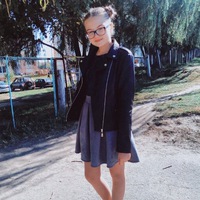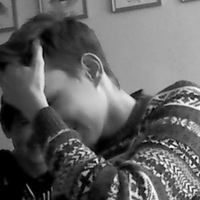
Поставьте глаголы в прошедшем времени. 1. Elle (s'approcher) de la maison. Les fenêtres (fermer).
Elle a compris que tout le monde (partir) sans elle. 2. Quand je (venir) à la gare, le train (déjà arriver). 3. Ils (passer) deux mois dans la maison que leur mère (acheter) il y a deux ans. 4. Tu (se rappeler) souvent la ville ou tu (passer) ton enfance. 5. Quand nous (arriver) à la gare, il faisait froid et la nuit (tomber). 6. Quand je (quitter) le bureau, le soleil (déjà se lever). 7. Toute la soirée il (parler) de la ville qu'il (visiter) pendant son voyage. 8. Mon mari (raconter) tout ce qu'il (voir) pendant son voyage. 9. Quand je (arriver), la discussion ( déjà commencer). 10. Quand nous (sortir) du restaurant, le soleil (se coucher). 11. Quand elle (descendre) dans la rue, elle a vu qu'il (pleuvoir) toute la nuit. 12. Tout était blanc, il (neiger) toute la nuit.  0
0
 0
0
Ответы на вопрос
 Внимание! Ответы на вопросы дают живые люди. Они могут содержать ошибочную информацию, заблуждения, а также ответы могут быть сгенерированы нейросетями. Будьте внимательны. Если вы уверены, что ответ неверный, нажмите кнопку "Пожаловаться" под ответом.
Внимание! Ответы на вопросы дают живые люди. Они могут содержать ошибочную информацию, заблуждения, а также ответы могут быть сгенерированы нейросетями. Будьте внимательны. Если вы уверены, что ответ неверный, нажмите кнопку "Пожаловаться" под ответом.

Ответ:
1. Elle s'est approchée de la maison. Les fenêtres étaient fermées. Elle a compris que tout le monde est parti sans elle.
2. Quand je suis venu(e) à la gare, le train était déjà arrivé.
3. Ils a passé deux mois dans la maison que leur mère a acheté il y a deux ans.
4. Tu te rappelais souvent la ville ou tu as passé ton enfance.
5. Quand nous sommes arrivé(e)s à la gare, il faisait froid et la nuit était tombée.
6. Quand j'ai quitté le bureau, le soleil s'est déjà levé.
7. Toute la soirée il parlait de la ville qu'il a visité pendant son voyage.
8. Mon mari a raconté tout ce qu'il a vu pendant son voyage.
9. Quand je suis arrivé(e), la discussion était déjà commencée.
10. Quand nous sommes sortis du restaurant, le soleil s'est couché.
11. Quand elle est descendue dans la rue, elle a vu qu'il pleuvait toute la nuit.
12. Tout était blanc, il a neigé toute la nuit.
 0
0
 0
0

Conjugated Verbs in the Past Tense
1. Elle s'approcha de la maison. Les fenêtres se fermèrent. Elle a compris que tout le monde était parti sans elle. - "Elle s'approcher de la maison" - The verb "s'approcher" is conjugated in the past tense as "s'approcha" to match the subject "Elle" in the third person singular. - "Les fenêtres fermer" - The verb "fermer" is conjugated in the past tense as "fermèrent" to match the subject "Les fenêtres" in the third person plural. - "Elle a compris que tout le monde partir sans elle" - The verb "partir" is conjugated in the past tense as "parti" to match the subject "tout le monde" in the third person singular.
2. Quand je vins à la gare, le train était déjà arrivé. - "Quand je venir à la gare" - The verb "venir" is conjugated in the past tense as "vins" to match the subject "je" in the first person singular. - "le train déjà arriver" - The verb "arriver" is conjugated in the past tense as "était arrivé" to match the subject "le train" in the third person singular.
3. Ils ont passé deux mois dans la maison que leur mère avait achetée il y a deux ans. - "Ils passer deux mois dans la maison" - The verb "passer" is conjugated in the past tense as "ont passé" to match the subject "Ils" in the third person plural. - "que leur mère acheter il y a deux ans" - The verb "acheter" is conjugated in the past tense as "avait achetée" to match the subject "leur mère" in the third person singular.
4. Tu te rappelais souvent la ville où tu avais passé ton enfance. - "Tu se rappeler souvent la ville" - The verb "se rappeler" is conjugated in the past tense as "te rappelais" to match the subject "Tu" in the second person singular. - "où tu passer ton enfance" - The verb "passer" is conjugated in the past tense as "avais passé" to match the subject "tu" in the second person singular.
5. Quand nous arrivâmes à la gare, il faisait froid et la nuit tombait. - "Quand nous arriver à la gare" - The verb "arriver" is conjugated in the past tense as "arrivâmes" to match the subject "nous" in the first person plural. - "il faisait froid et la nuit tombait" - The verbs "faire" and "tomber" are conjugated in the past tense to match the subject "il" in the third person singular.
6. Quand je quittai le bureau, le soleil était déjà levé. - "Quand je quitter le bureau" - The verb "quitter" is conjugated in the past tense as "quittai" to match the subject "je" in the first person singular. - "le soleil déjà se lever" - The verb "se lever" is conjugated in the past tense as "était levé" to match the subject "le soleil" in the third person singular.
7. Toute la soirée, il parlait de la ville qu'il avait visitée pendant son voyage. - "il parler de la ville" - The verb "parler" is conjugated in the past tense as "parlait" to match the subject "il" in the third person singular. - "qu'il visiter pendant son voyage" - The verb "visiter" is conjugated in the past tense as "avait visitée" to match the subject "qu'il" in the third person singular.
8. Mon mari racontait tout ce qu'il avait vu pendant son voyage. - "Mon mari raconter tout ce qu'il voir" - The verb "raconter" is conjugated in the past tense as "racontait" to match the subject "Mon mari" in the third person singular. - "pendant son voyage" - The verb "voir" is conjugated in the past tense as "avait vu" to match the subject "qu'il" in the third person singular.
9. Quand je suis arrivé, la discussion avait déjà commencé. - "Quand je arriver" - The verb "arriver"
 0
0
 0
0
Похожие вопросы
Топ вопросов за вчера в категории Французский язык
Последние заданные вопросы в категории Французский язык
-
Математика
-
Литература
-
Алгебра
-
Русский язык
-
Геометрия
-
Английский язык
-
Химия
-
Физика
-
Биология
-
Другие предметы
-
История
-
Обществознание
-
Окружающий мир
-
География
-
Українська мова
-
Информатика
-
Українська література
-
Қазақ тiлi
-
Экономика
-
Музыка
-
Право
-
Беларуская мова
-
Французский язык
-
Немецкий язык
-
МХК
-
ОБЖ
-
Психология
-
Физкультура и спорт
-
Астрономия
-
Кыргыз тили
-
Оʻzbek tili






















